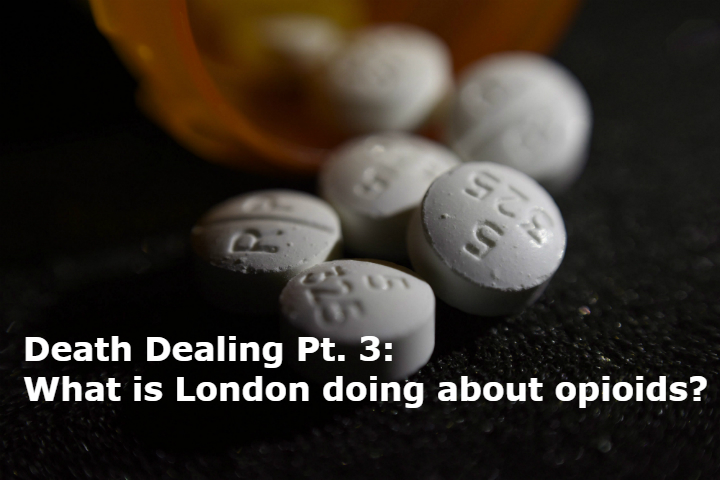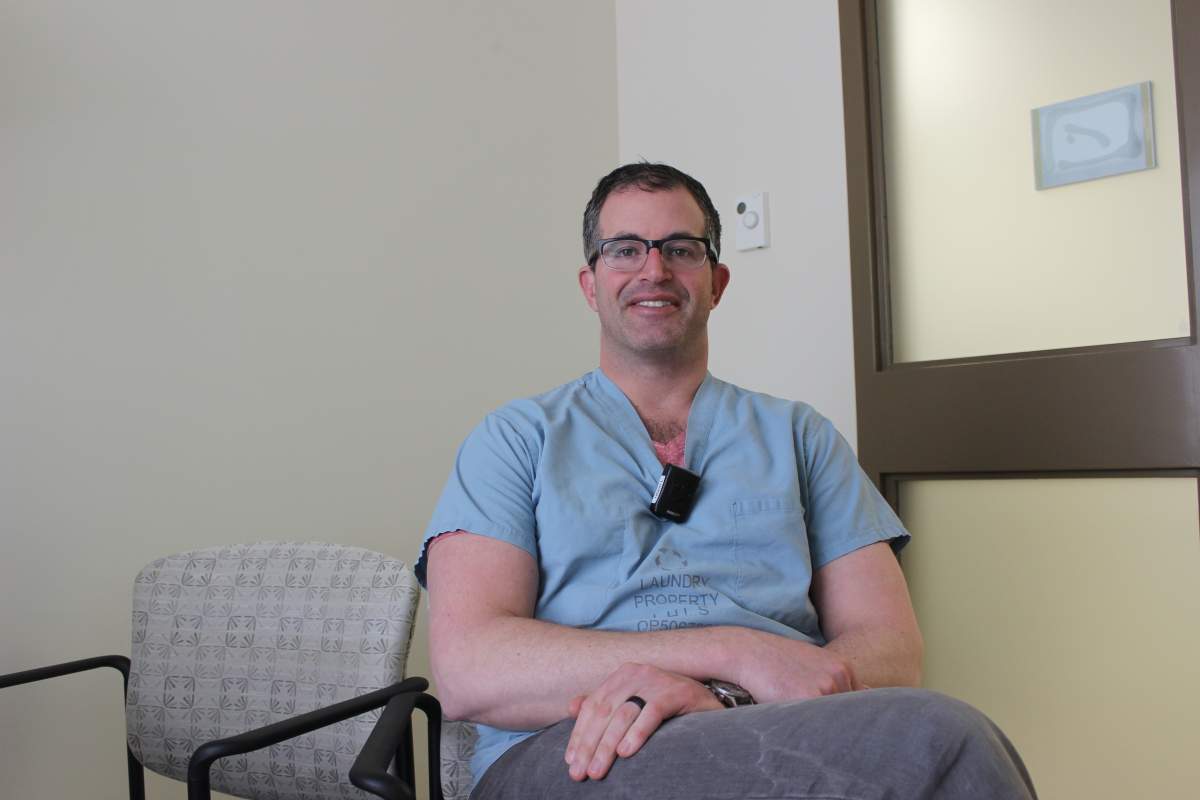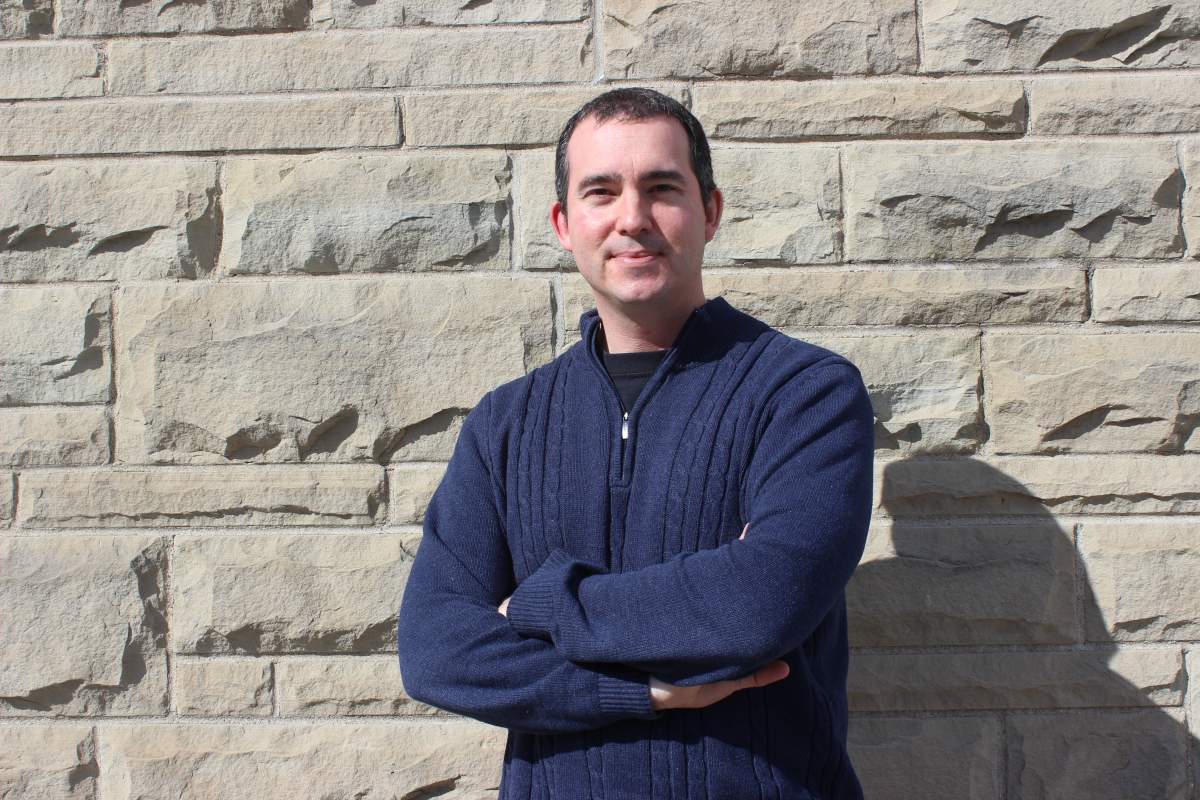“People will call all the time, and say hey there’s someone walking down York Street right now, and I think they need help.”

D’Wayne Price is a staff sergeant with the London Police Service, who noticed the impact of prescription medicine as it made it onto the street in the early 2000s, and has seen how police officers’ approach to drug-related calls has evolved.
LISTEN: Part 3 of Death Dealing, a look at opioid use in London, Ont.
“Where before it would have been a matter of making an arrest, because they’re intoxicated in public, we’re now seeing it as the health issue that it is and trying our best to keep the situation from escalating,” he explained.
The majority of drug-related calls Price attends now are overdose calls, which often involve fentanyl, he said.
The London Police Service and the Middlesex-London Health Unit have been sounding the alarm when it comes to fentanyl; the synthetic opioid is about 100 times more powerful than morphine, and can kill people when it turns up unexpectedly in street drugs.

Get daily National news
London had the third-highest rate of opioid overdoses in Canada last year, but some say the discourse of opioids as an “epidemic” or a “crisis” is also problematic.
“I think opioids are the right medication, for the right person, at the right time, for the right condition, and as long as it’s at the right dose,” says Dr. Collin Clarke, an anesthesiologist and a chronic pain management physician at the pain management program at St. Joseph’s Hospital in London.
Clarke credits last year’s opioid prescribing guidelines for encouraging physicians to exhaust non-habit forming pain management options first and says only a small number of clients in the pain management program are the right candidates for opioids.
Dr. Dave Walton, an associate professor at Western University’s School of Physical Therapy and a member of the Bone and Joint Institute says people with chronic pain have struggled to find legitimacy from their friends, families, and doctors for years.
“I keep getting emails, I’ve got pieces here from patients saying … ‘my relationship with my doctor has gotten quite terrible since this whole opioid crisis started,'” he said.
As an educator and a researcher, Walton said he’s not for or against opioids. His prime concern is the patients who are struggling to manage their pain, some of whom are now supplementing their pain medication by buying it illegally because their prescription has been reduced.
“If we were to magically snap our fingers tomorrow and all opioids would disappear from the world, I don’t believe addiction would disappear. And if that’s the case, if people agree with me, then we can’t say the problem right now is a crisis of opioids, the problem that we really have, the crisis is either unmanaged, undermanaged, or under-reported mental health problems in Canada.”
For some, the problem might be undermanaged mental health problems. For others, it might be trauma, the stigmatization of addiction or opioids, a lack of true human connection, affordable housing, criminalization, or a combination of underlying issues.
And before we can start creating better quality lives for people, some experts say we need to address those root issues — not just the opioids.
Share your stories of how opioid use has affected you via the form below or on Twitter using the hashtag #DeathDealing. Your submission may be used in our future coverage. However, Global News won’t share your name and contact information without your permission.
- Queen’s University students stranded in Doha after Iran attack shuts down airspace
- WWE Hall of Fame ring belonging to wrestling legend recovered after stolen
- Carney calls for protection of civilians as U.S., Israel strike Iran
- Quebec politician praised for speaking openly about menopause symptom in legislature














Comments
Want to discuss? Please read our Commenting Policy first.